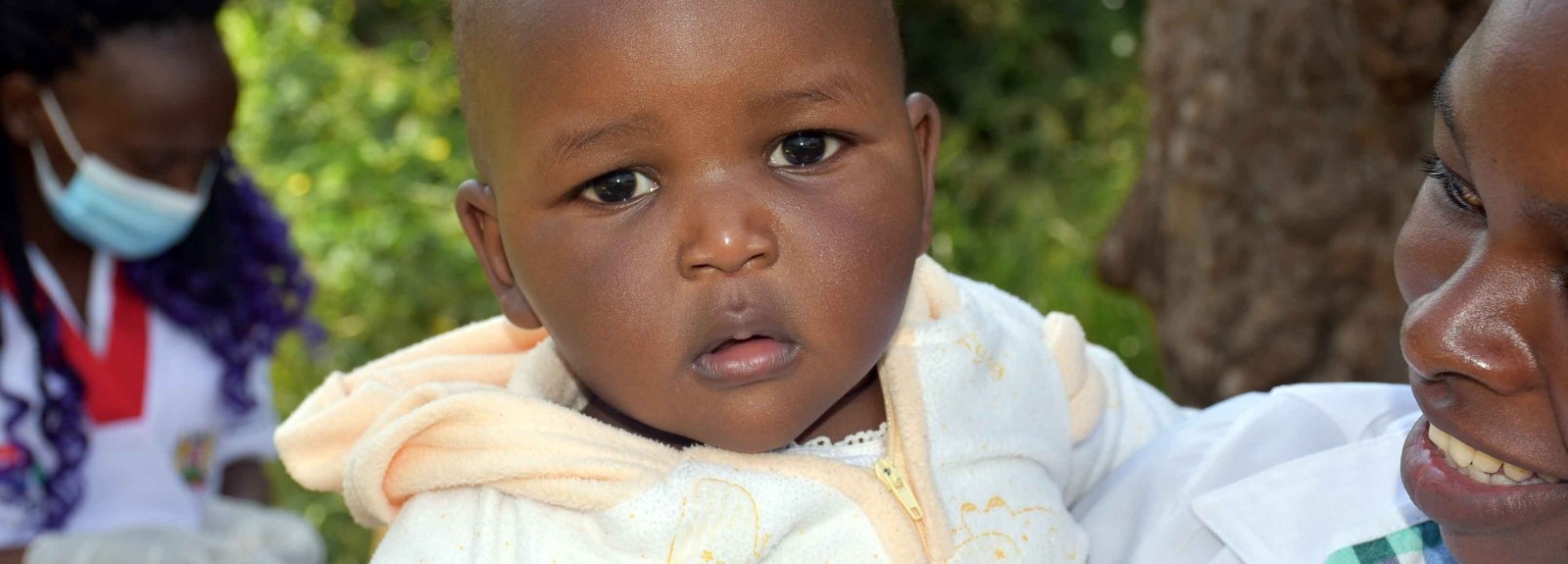Pelline Kemunto faced a difficult choice: her infant son was due for his measles vaccination, but she was afraid they would be exposed to the novel coronavirus if they ventured to the health center. Which was the bigger risk to her family’s health and well-being?
Kemunto is not the only parent in urban Nairobi weighing these options, and for many, their fears of contracting COVID-19 have prevailed. In the months since the global coronavirus pandemic began, the Government of Kenya has reported a sharp drop in the number of patients seeking health services in city clinics.
Though staying home and social distancing are important ways to stop the spread of COVID-19, some medical visits — including routine checkups and immunizations for children and pregnant women — remain critical for women’s health and children’s growth and development. In slums, far too many of the most vulnerable mothers and children already get sick, die or face a lifetime of complications because they lack basic health care.
The last thing they need is another barrier to accessing essential health services.
Ensuring basic health care amid COVID-19 challenges
Since 2015, the USAID Afya Jijini project has worked to strengthen the delivery of health services to vulnerable communities in Nairobi City County. The targeted services include HIV prevention, testing and treatment; maternal, neonatal and child health services; family planning and reproductive health services; water, sanitation and hygiene; and nutrition services.
Through its efforts to strengthen the health system and develop its institutional and management capacity, Afya Jijini has celebrated many successes toward its health indicators. For example, between 2015 and 2018, Afya helped to facilitate a 40% decrease in maternal deaths and a 23% decrease in newborn deaths at target high volume health facilities.
But such advancements are difficult to sustain if, in the face of challenges like COVID-19, patients are too afraid to visit health centers.
In response, in order to continue meeting the health needs of at-risk communities, Afya Jijini is now taking certain critical health services to them.
Establishing community-based maternal and child health care
For the past several weeks, Afya Jijini has used outdoor spaces at local schools and churches to continue providing maternal and child health services for families in Nairobi’s slums. This way, pregnant women, mothers and children do not have to interact with potentially sick patients at health centers where they would normally go for checkups, immunizations, nutrition counseling and other critical services.
To keep patients, parents and health workers safe, these community-based clinics take precautions:
-
Visitors are screened on entry and have their temperature taken
-
All visitors must wear a mask and sanitize their hands before entry
-
A disinfection team cleans and disinfects surfaces throughout the day
-
Adequate waiting areas are established to ensure proper social distancing
-
All staff have masks, a digital thermometer and hand sanitizer for protection and monitoring.
Through this proactive, coordinated and adaptable approach, Nairobi City County can continue to reach its most vulnerable families with critical health services throughout the pandemic and beyond.


